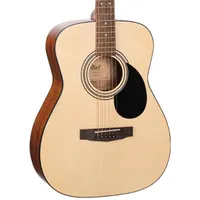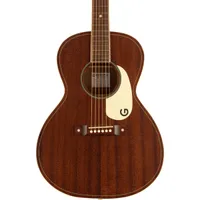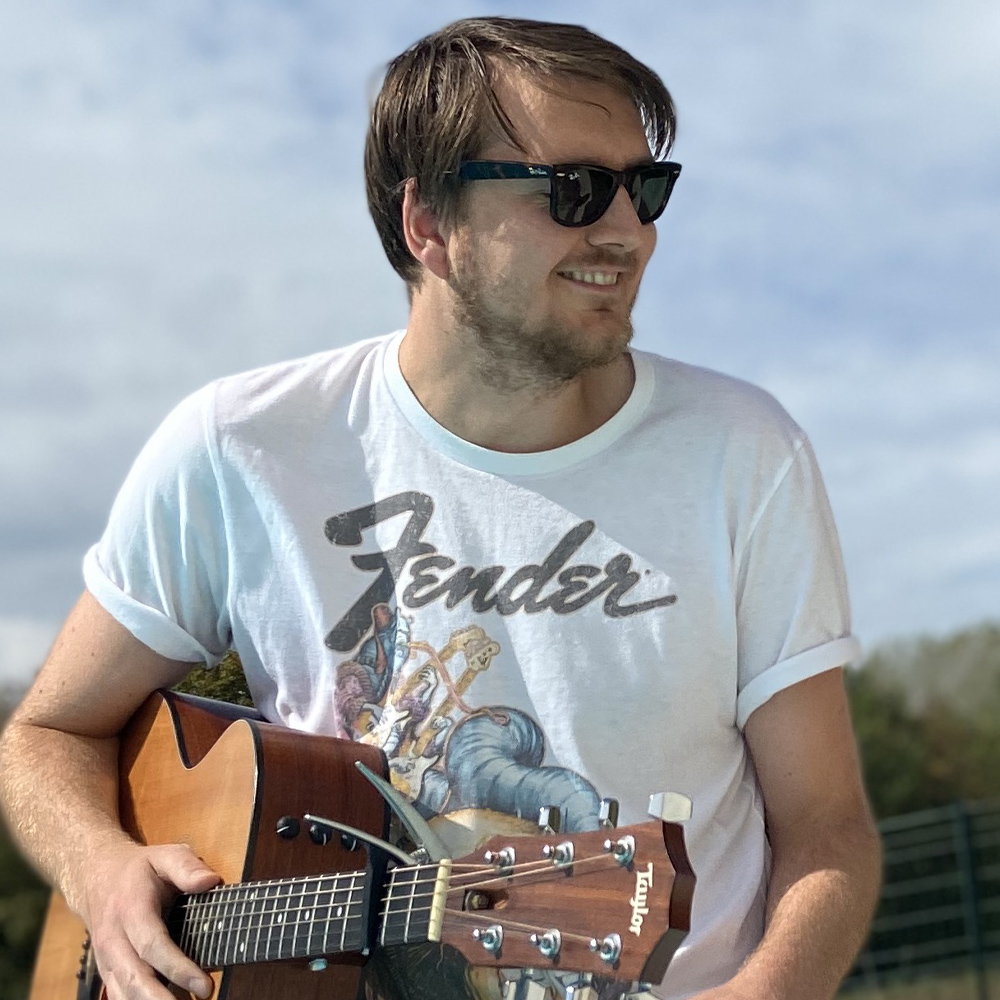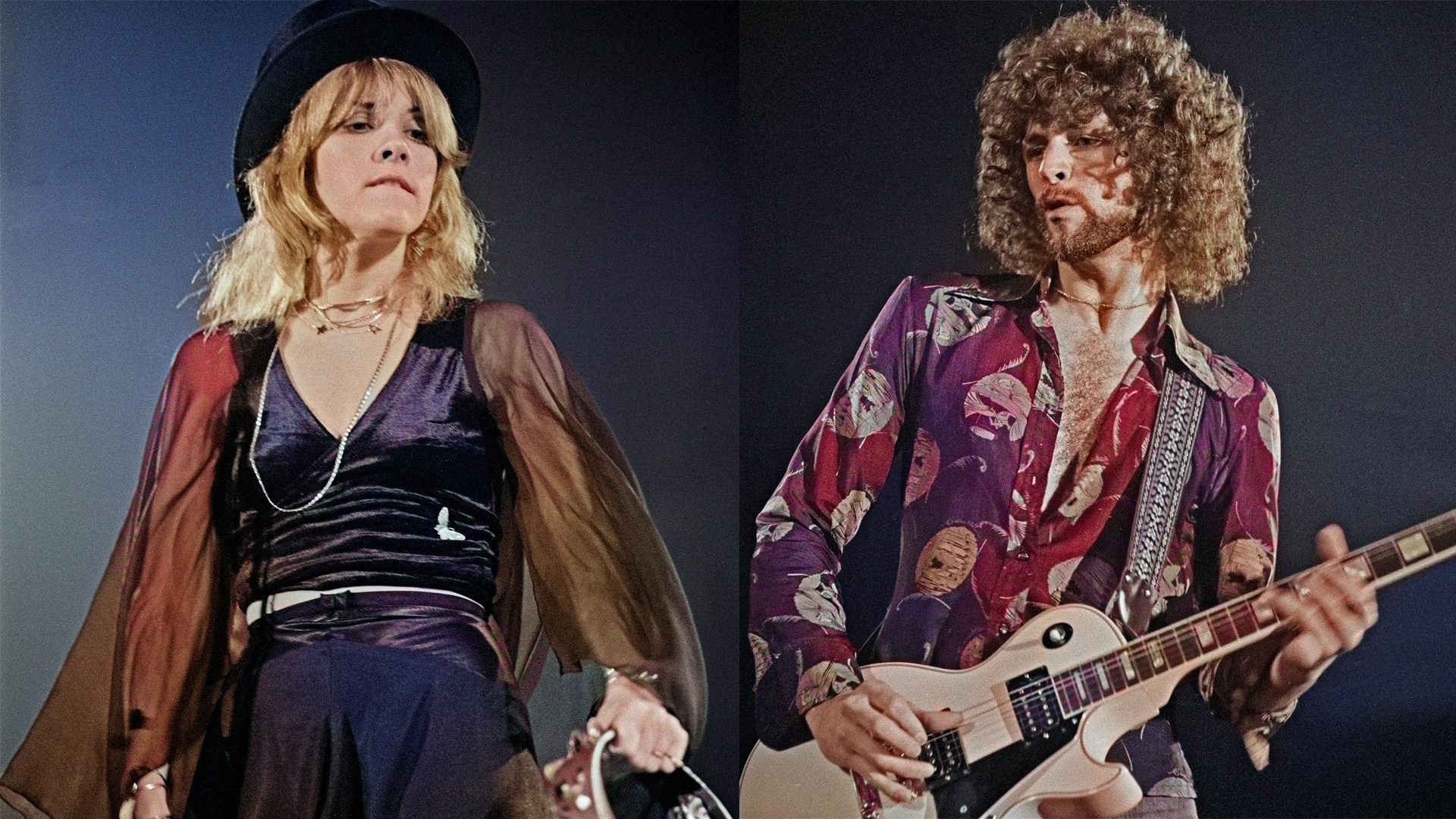Best beginner acoustic guitars 2025: start as you mean to go on
My pick of tried-and-tested beginner acoustics from trusted brands including Taylor, Fender, Epiphone, and more
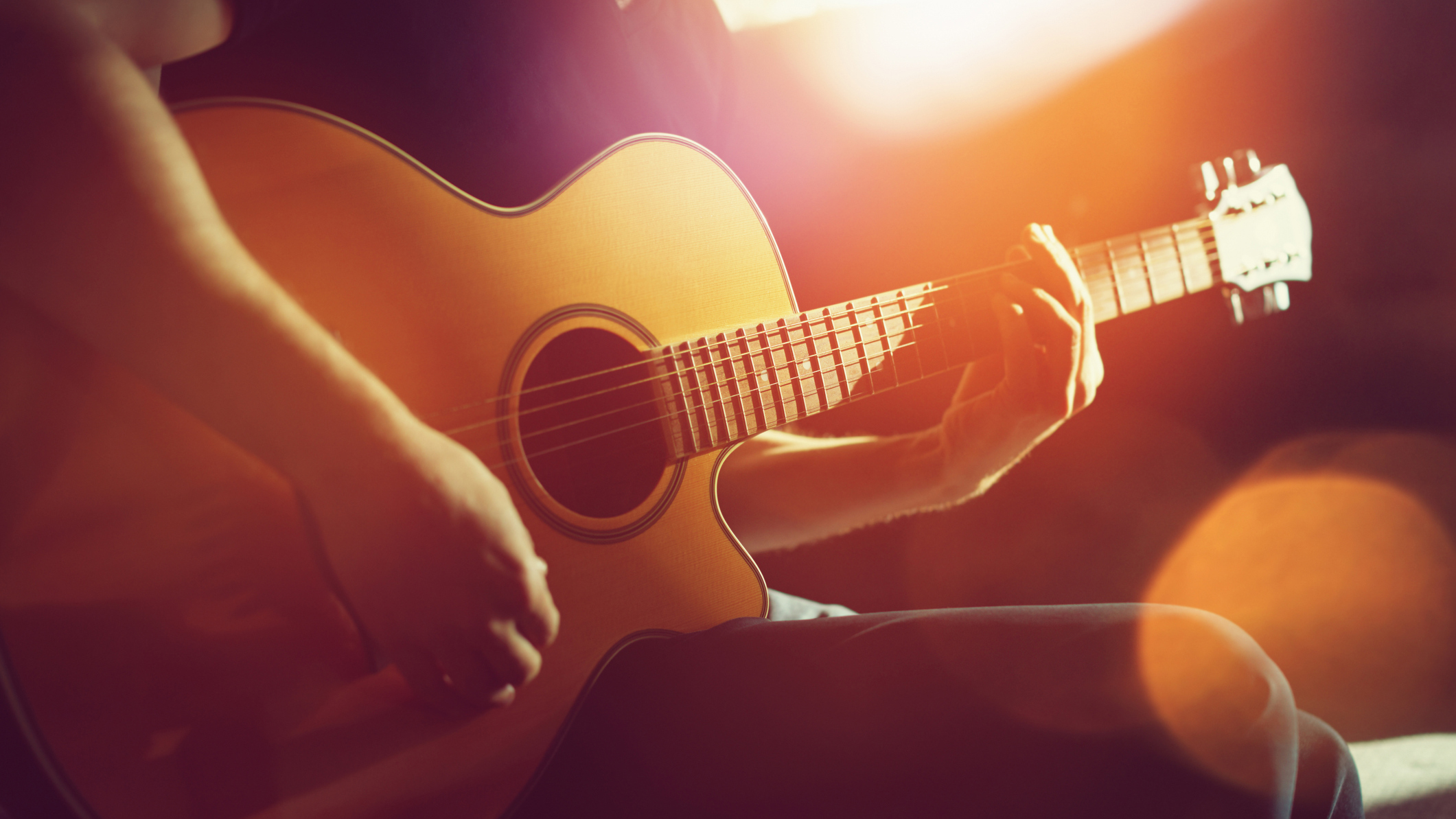
Starting with the best beginner acoustic guitar is the smartest way to kick off your playing journey. Not only will an acoustic build finger strength and improve clarity when fretting chords, but it also lets you focus on the fundamentals; no amp, no distractions, just pure playing.
Whether you’re after a cheap starter instrument or you’re looking to invest a little more into something that will last longer, all of the beginner acoustics in this guide boast specifications that render them suitable for first-time players – take it from us, we were all beginners once.
Slimmer necks and more compact dimensions are quite popular amongst beginner guitars, but we’ve hand-picked a range of instruments from some of the biggest and most trusted names in the industry – Fender, Taylor and Epiphone to name a few – that all showcase something slightly different.
Different players value different features, and everyone learns in their own way. That’s why we’ve curated a broad selection to suit all types of beginners, drawing on over 20 years of playing experience and a decade in guitar retail, helping first-time players find the right fit.
We've also included some useful FAQs further down this page.
My top picks
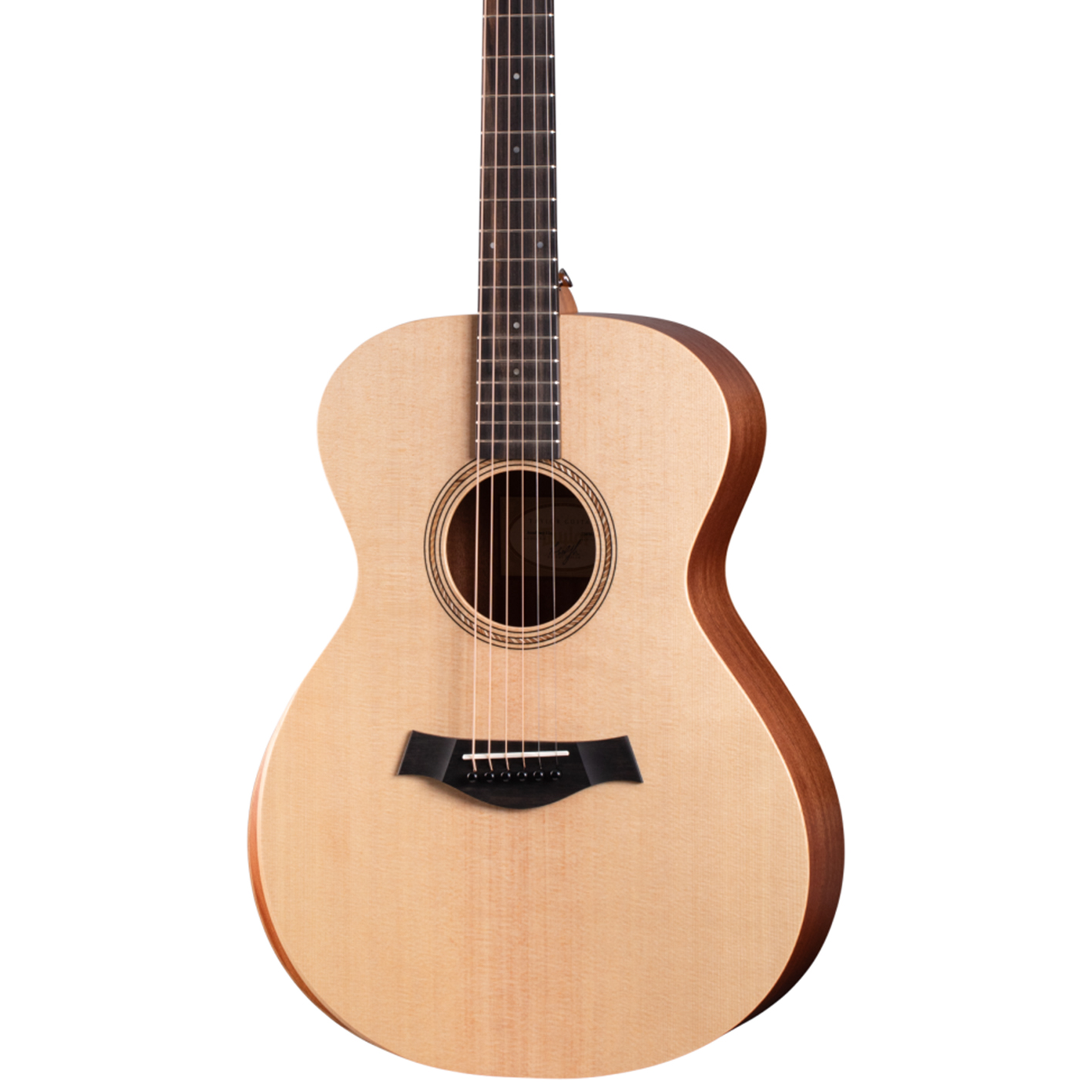
The Academy 12's slim neck profile has been designed with beginners in mind, and the armrest on the body of the guitar makes positioning your body correctly more comfortable. It’s a bit of an investment for your first guitar, but it means you won’t have to upgrade for quite some time.
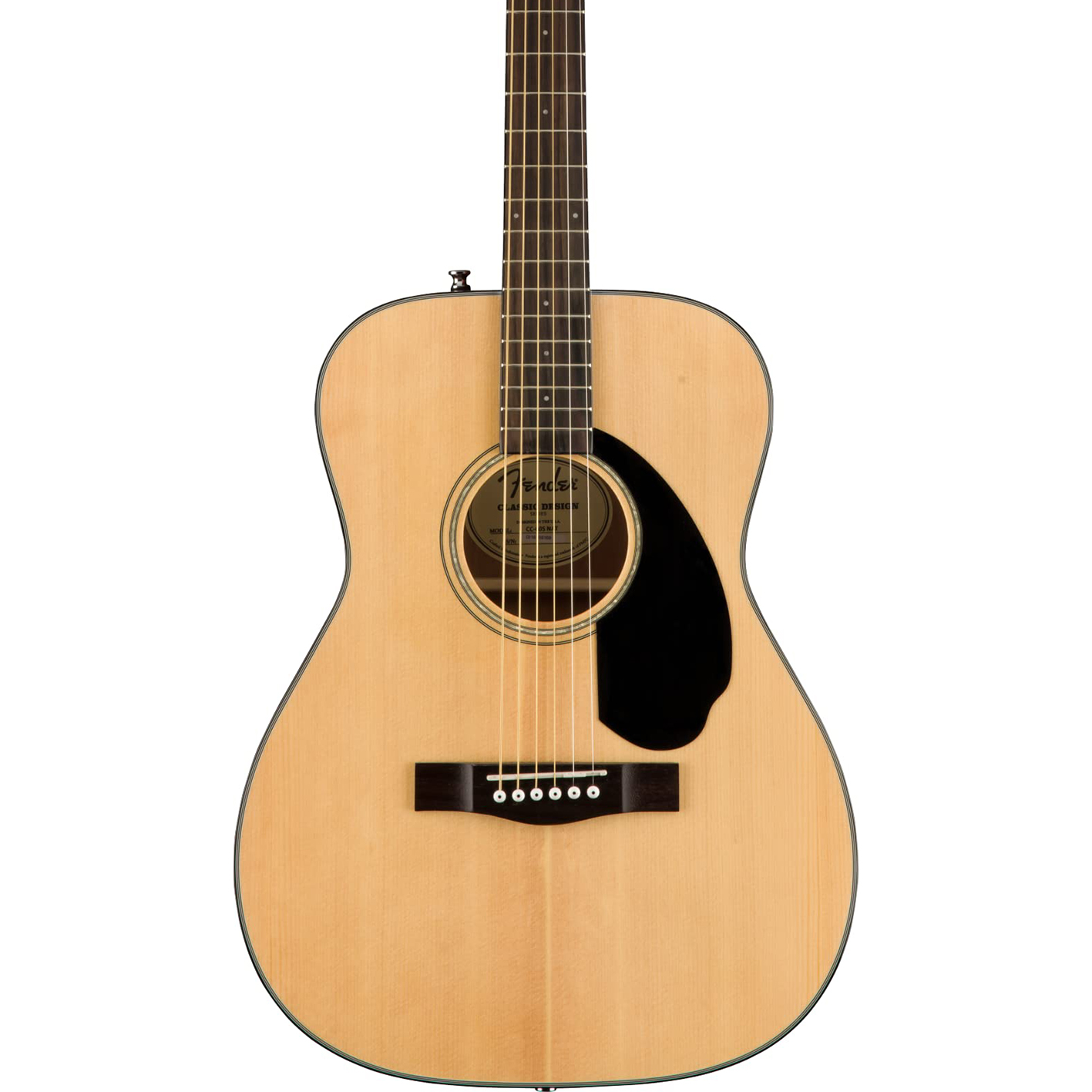
A solid-topped Fender at this price is nothing to be sniffed at. It’s an entry-level instrument, but the addition of a solid spruce top means that you get a richer, more complex tone than you would with a laminate top. If you’re after a basic but great sounding acoustic guitar at a reasonable price, then this really is one to consider.
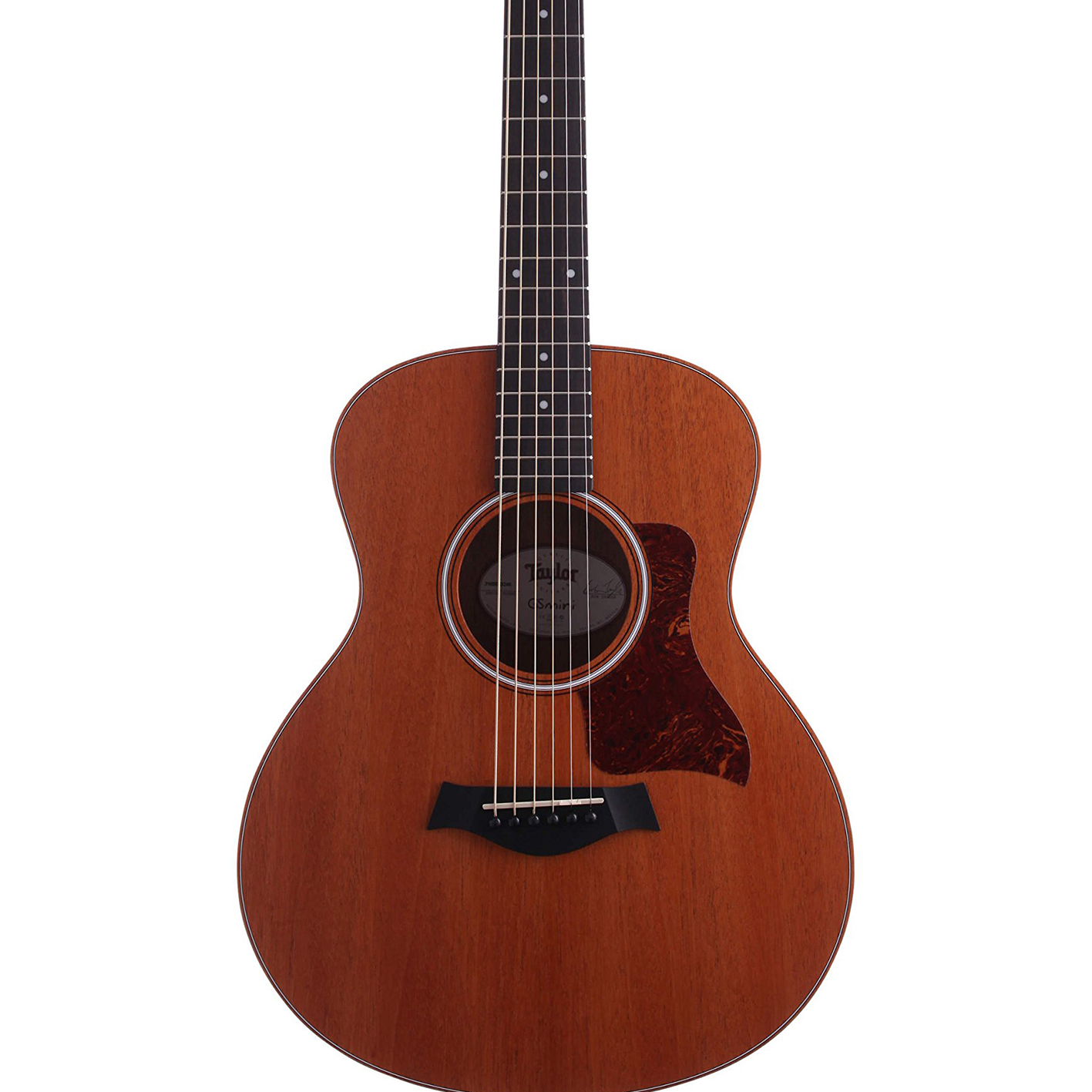
The GS Mini is one of the most popular acoustic guitars on the market amongst beginners and pros alike. Players just starting out love the super compact dimensions, short scale and ultra playable neck, and more experienced guitarists appreciate the rich, balanced tone and premium build quality.
Best overall
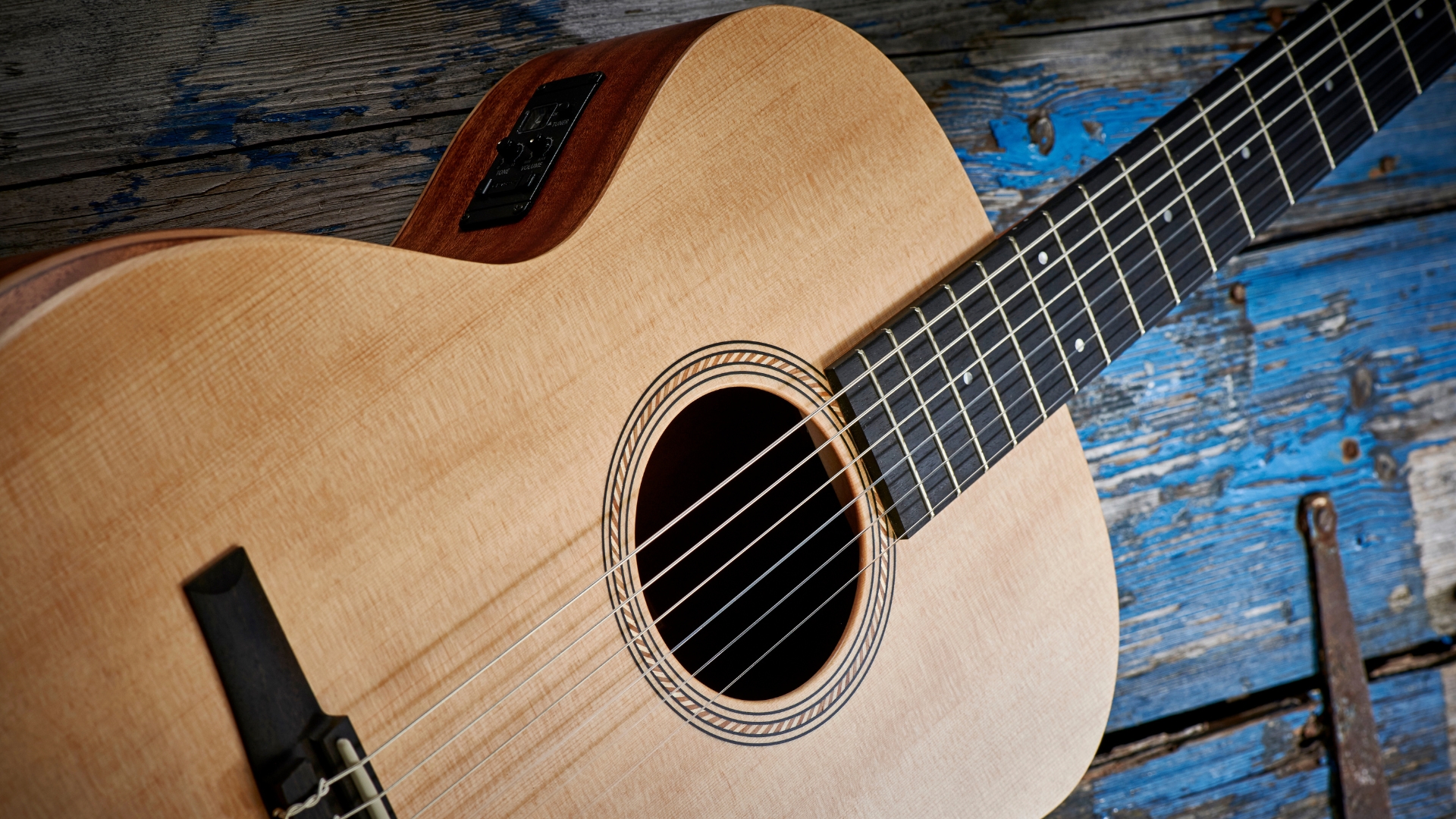
1. Taylor Academy 12E
Our expert review:
Specifications
Reasons to buy
Reasons to avoid
The Taylor Academy series was designed to give players the best guitar possible for the least amount of money and cater to all sorts of different playing styles. It’s by no means cheap, but you do get a high-quality guitar, built well, that plays wonderfully.
It features a solid spruce top and layered walnut back and sides, and sounds rich, clear and articulate. It’s punchy and quite bright, and it works for whatever style of music you’re looking to play, whether that be strumming or fingerpicking. The Grand Concert shape is nice and comfortable too, and is perhaps more subtle than its dreadnought counterpart.
The slim neck profile has been designed with beginners in mind, and the armrest on the body of the guitar makes positioning your body correctly more comfortable. For 2025, Taylor has added its proprietary ES-B pickup system, giving you the option to plug in as your playing progresses. It’s a bit of an investment for your first guitar, but it means you won’t have to upgrade for quite some time.
Best budget
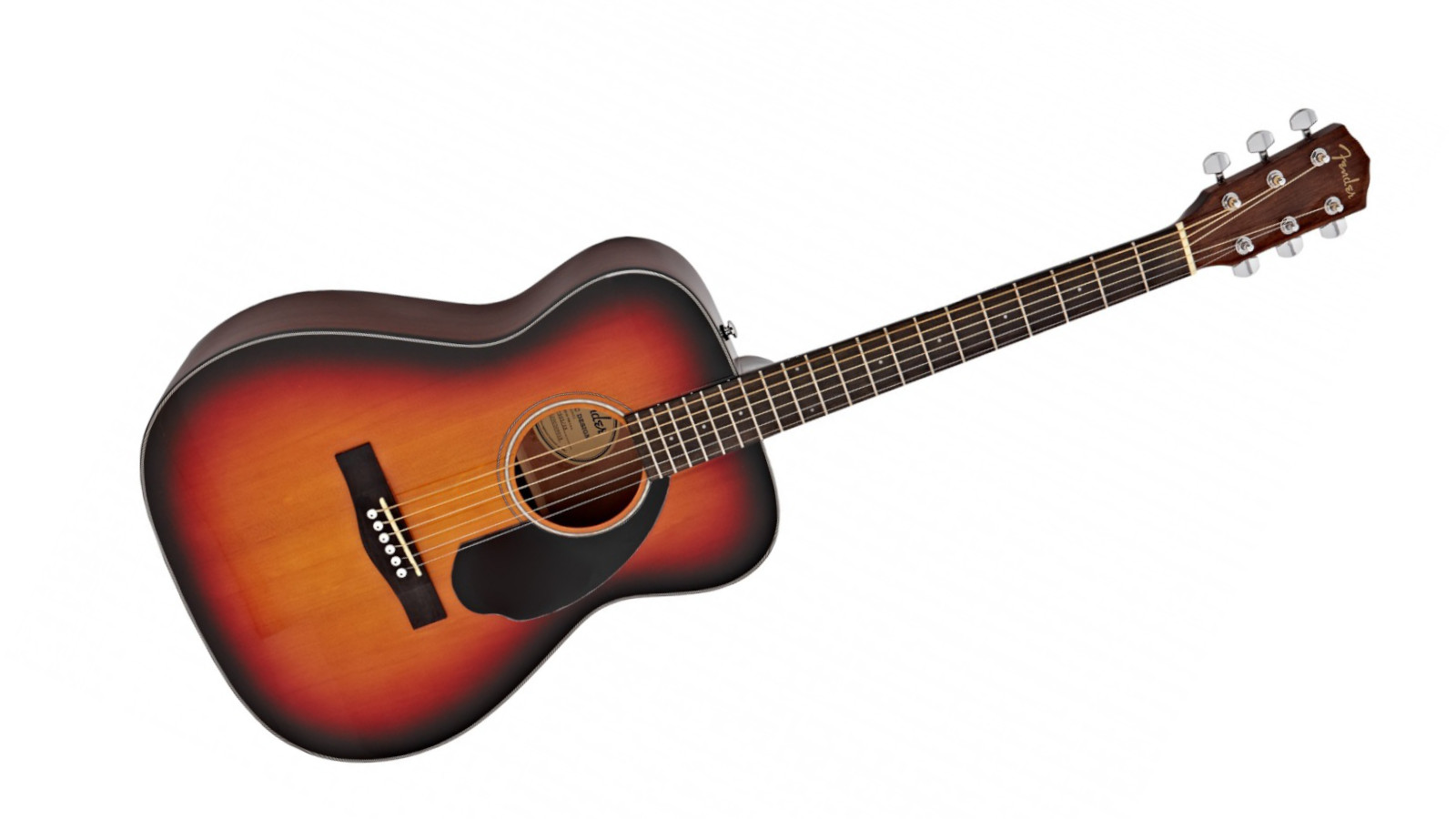
2. Fender CC-60S
Our expert review:
Specifications
Reasons to buy
Reasons to avoid
A solid-topped Fender at this price is nothing to be sniffed at. It’s an entry-level instrument, but the addition of a solid spruce top means that you get a richer, more complex tone than you would with a laminate top.
The concert-sized body shape is fairly compact, meaning that players of all sizes and statures will be comfortable playing it. It also helps give it a sweet, articulate tone that responds well to both fingerpicking and strumming. Fender have even equipped it with their ‘easy to play’ neck profile that has been made with those just starting out in mind.
If you’re after a basic but great sounding acoustic guitar at a reasonable price, then this really is one to consider.
Best for small hands
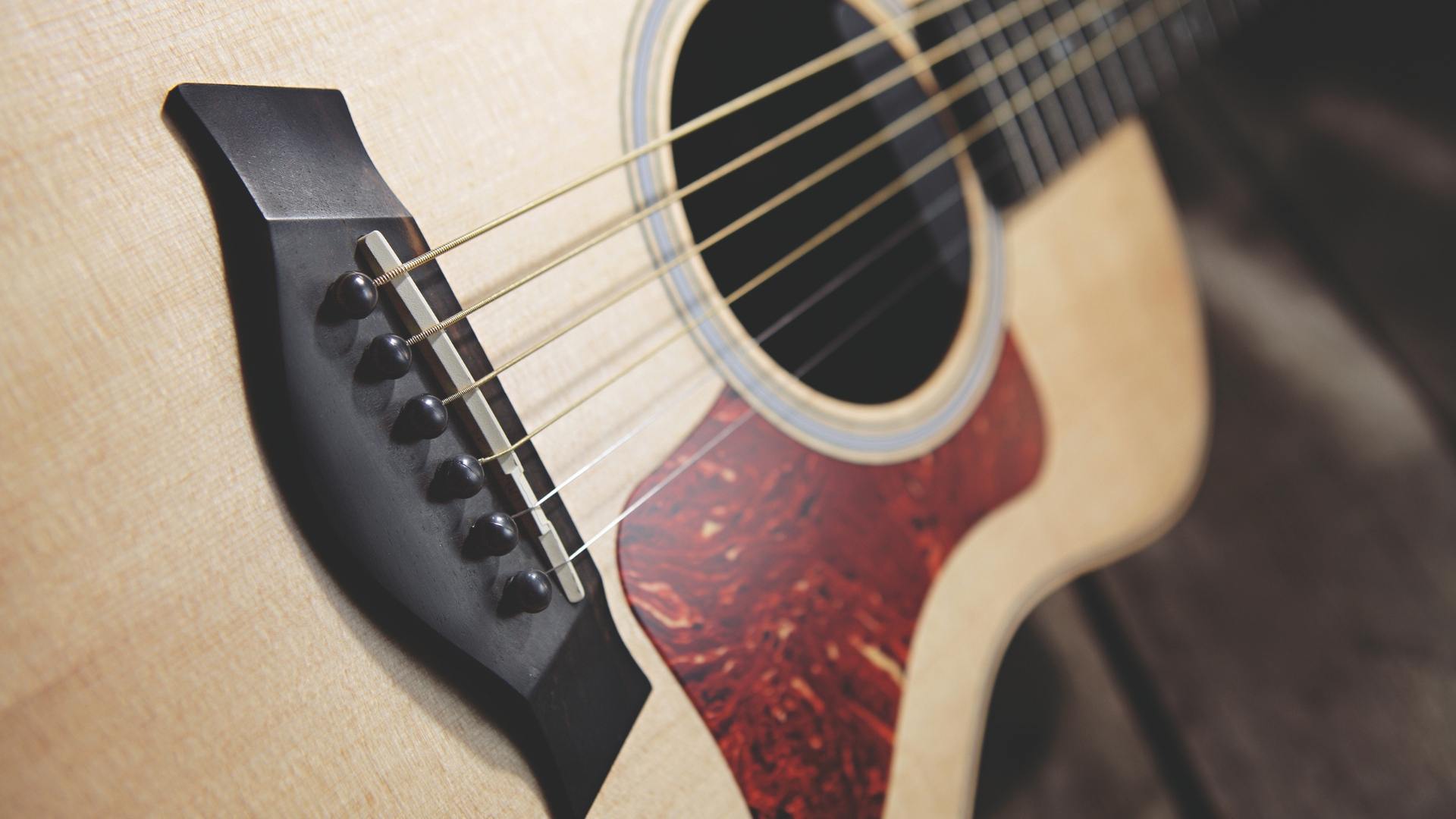
3. Taylor GS Mini
Our expert review:
Specifications
Reasons to buy
Reasons to avoid
The GS Mini is one of the most popular acoustic guitars on the market amongst beginners and pros alike. Players just starting out love the super compact dimensions, short scale and ultra playable neck, and more experienced guitarists appreciate the rich, balanced tone and premium build quality.
Yes, there are cheaper guitars you can start with, but sit down with a GS Mini for a short while and you’ll quickly see why many beginners choose it. It’s small, but not too small for adults. The neck is easy to get your fingers around and the short scale makes chord stretches and scales a touch easier to play.
The guitar is built using a solid spruce top, and layered sapele back and sides. The result is a beautiful rich, articulate sound with a lovely bright top end, and warm powerful low end. It also throws out a surprising amount of volume for a small guitar!
Best dreadnought
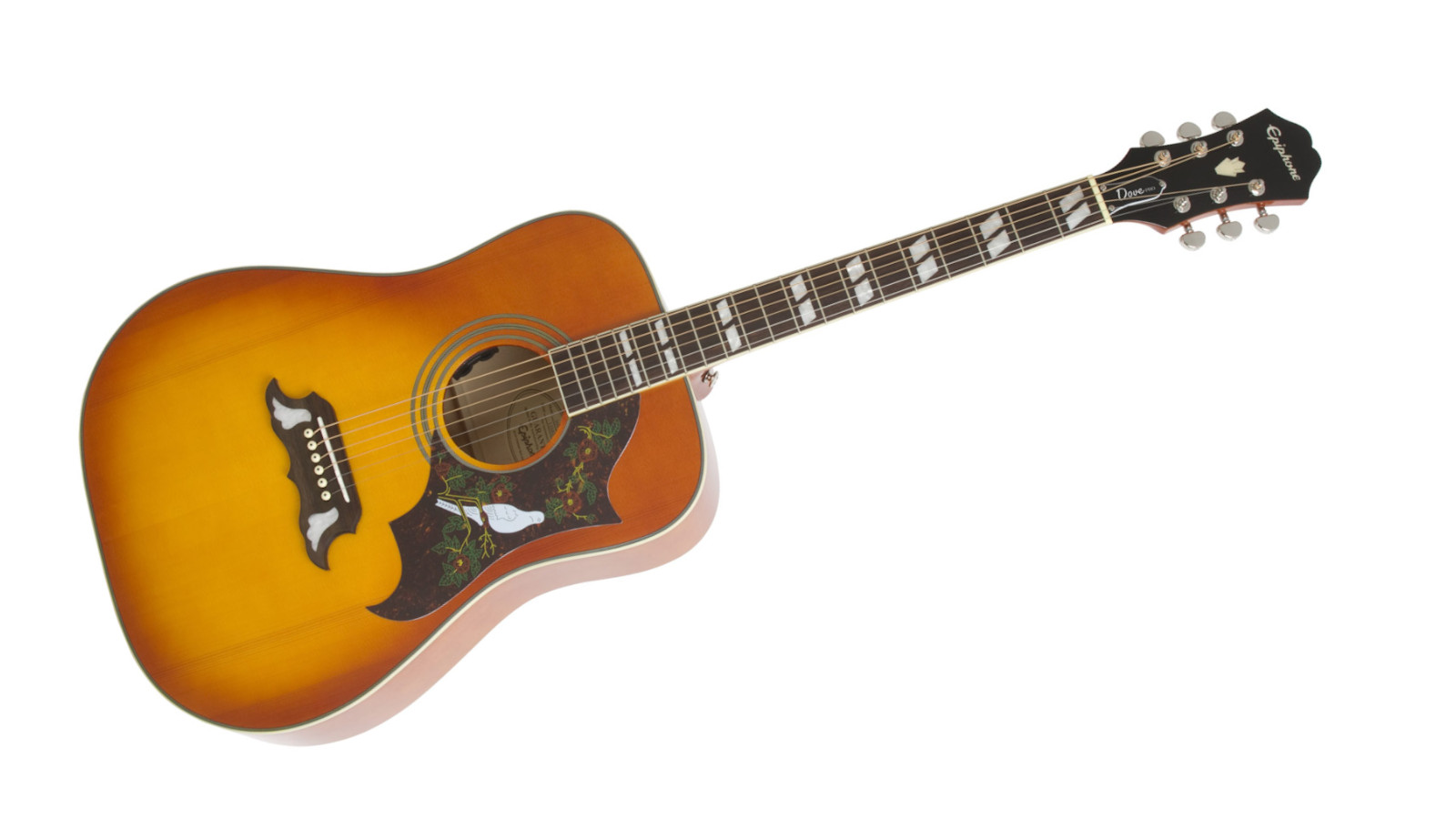
4. Epiphone Dove Studio
Our expert review:
Specifications
Reasons to buy
Reasons to avoid
The Dove is one of the most striking acoustic guitars, and Epiphone’s take on the Gibson classic is a great place for a beginner to start. Loads of renowned players have used a Gibson Dove over the years, from Billy Morgan to Bob Dylan. This model is a much more affordable version but shares many of the same qualities.
It sports a dreadnought body shape which offers plenty of power and projection. It has strong low and high frequencies, which is enhanced even more by the guitar’s maple back and sides – this adds a touch more brightness to the sound. Whether you’re looking to play rock, blues, folk, country, the Dove will cater for it.
The dreadnought body isn’t the smallest; it’s probably fine for most people, but it’s something to keep in mind. The neck profile is a nice SlimTaper D shape though, making it easy to get your fingers round to the fretboard. It’s also got a pickup on board, so if you’re looking to play live in the near future, then you’re ready to go.
Best acoustic electric for beginners
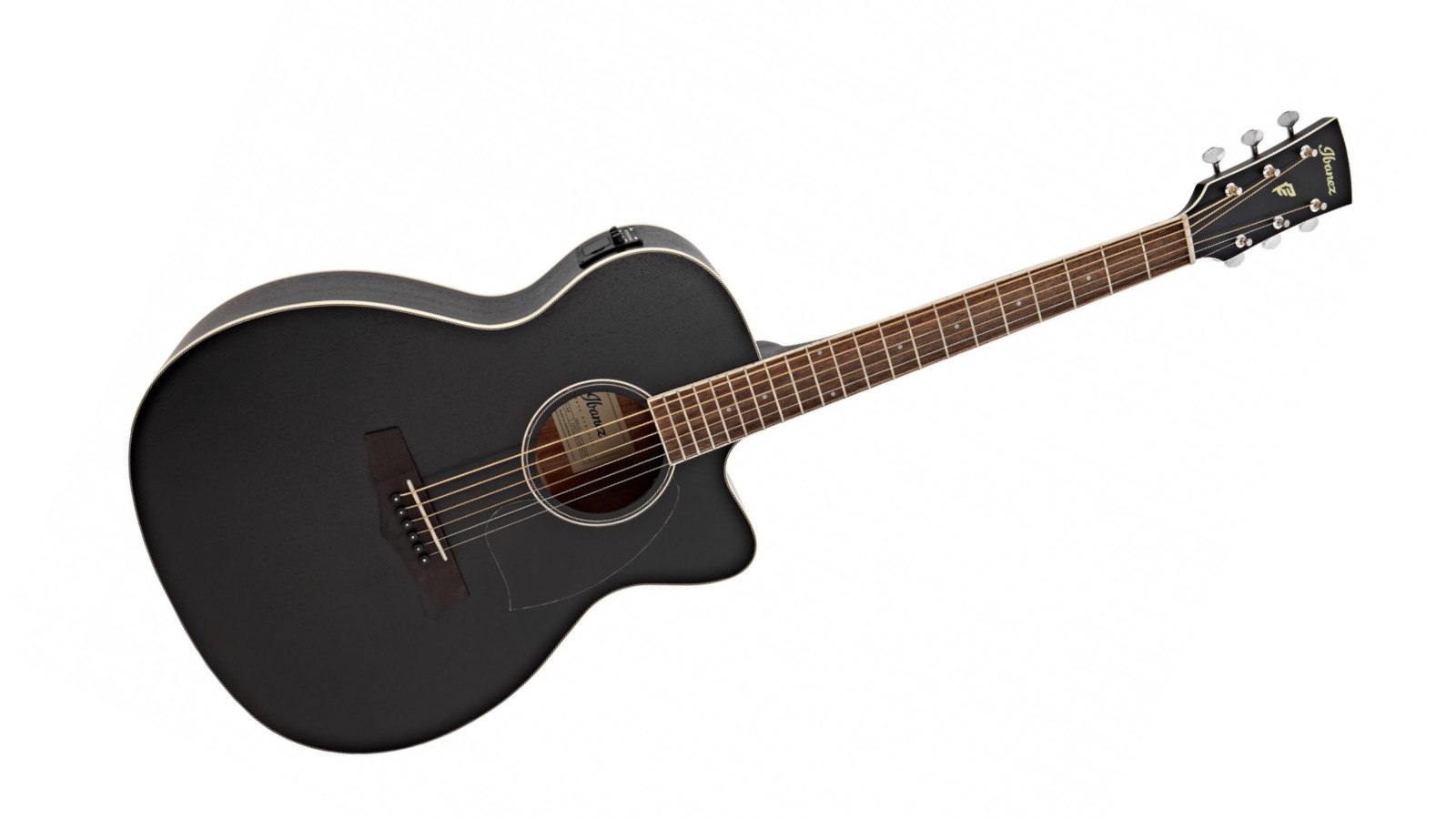
5. Ibanez PC14MHCE
Our expert review:
Specifications
Reasons to buy
Reasons to avoid
If you’re seeking an affordable acoustic guitar fitted with a pickup (aka an acoustic electric guitar) for using at gigs or open-mic nights, then this is one to consider. It’s got a laminate okoume top, back and sides, lending the guitar a full and warm sound.
The laminate wood won’t sound quite as rich and resonant as solid wood does, but it’s still a nice sounding instrument. It’s also fitted with a pickup, which means if you want a guitar to learn on and then go out performing live with, then this Ibanez has you covered. The on-board preamp even has a tuner built in, which is particularly handy when just starting out.
The cutaway is really handy for getting to those top notes, should you want to start experimenting with lead parts or more adventurous chords, and the compact body makes for a very comfortable playing experience.
Best classical
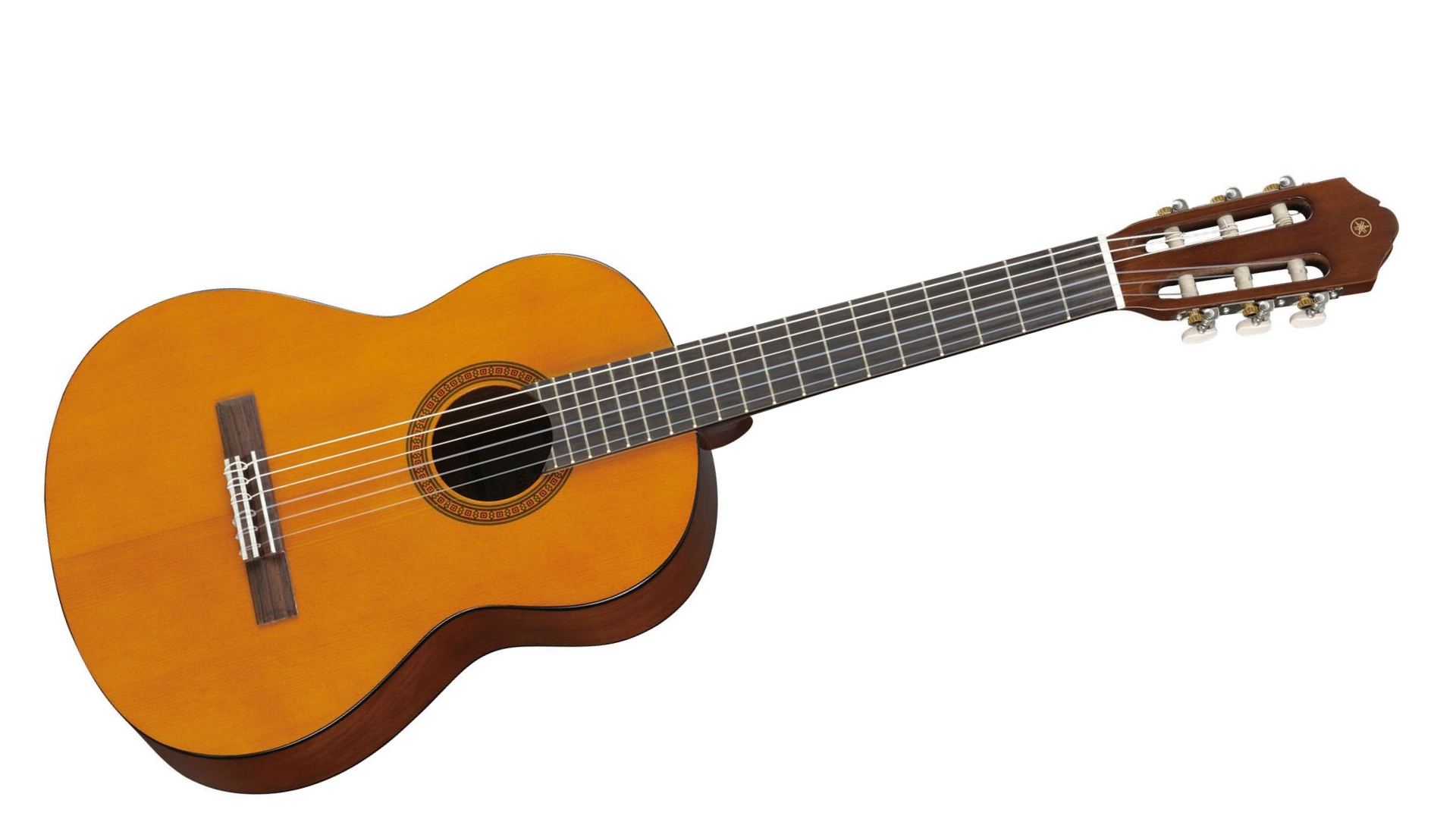
6. Yamaha C40III
Our expert review:
Specifications
Reasons to buy
Reasons to avoid
The Yamaha C40II has long been a staple for first-time players, and it’s easy to see why. With a full-size classical body and soft nylon strings, it’s far more forgiving on untrained fingers than a typical steel-string acoustic. The neck has a smooth satin finish, and the low action makes it easy to play straight out of the box.
Tonally, the C40II punches above its price. The laminated spruce top delivers a clear, balanced tone with enough warmth and resonance to suit classical, flamenco, or even casual fingerstyle. It’s not especially loud, but for home practice and learning the basics, it more than holds its own.
What really makes the C40II stand out is just how much guitar you get for the money. Between the solid tuning stability, beginner-friendly setup, and great construction, it offers far more than you’d expect at this price. For new players who want a no-fuss instrument they can actually enjoy learning on, the C40II is the best classical option on the market.
Also consider
The beginner acoustics above should cover most of the bases, but in case you didn't find what you were looking for, here are a few more options for your consideration.
Cort AF510
Mahogany sides | Spruce top | Mahogany neck | Merbau fingerboard
The concert body shape is less cumbersome than something like a dreadnought, so smaller players or children might find it more comfortable. It also gives the guitar a balanced and focused sound, with a lovely, clear top end. If you’re not sure what style of music you’ll be playing, then this guitar allows you to do pretty much anything, from big bold strumming to gentle fingerpicking.
★★★★☆
Gretsch Jim Dandy Concert
Basswood sides | Basswood top | Nato neck | Walnut fingerboard
If you’re drawn to old-school charm but don’t want to pay vintage prices, the Gretsch Jim Dandy Concert hits the sweet spot. Inspired by the catalog guitars of the 1930s, this compact acoustic brings retro style to the entry-level market, with a squared-off headstock, aged pickguard, and either a Rex Burst or Frontier Stain finish that both look (and sound) like it’s been time-warped from a Depression-era front porch or saloon. Moreover, its concert body shape is easy to handle, especially for smaller players or those just starting out, and the C-shaped neck feels stress-free and comfortable in the hands.
★★★★☆
How to choose
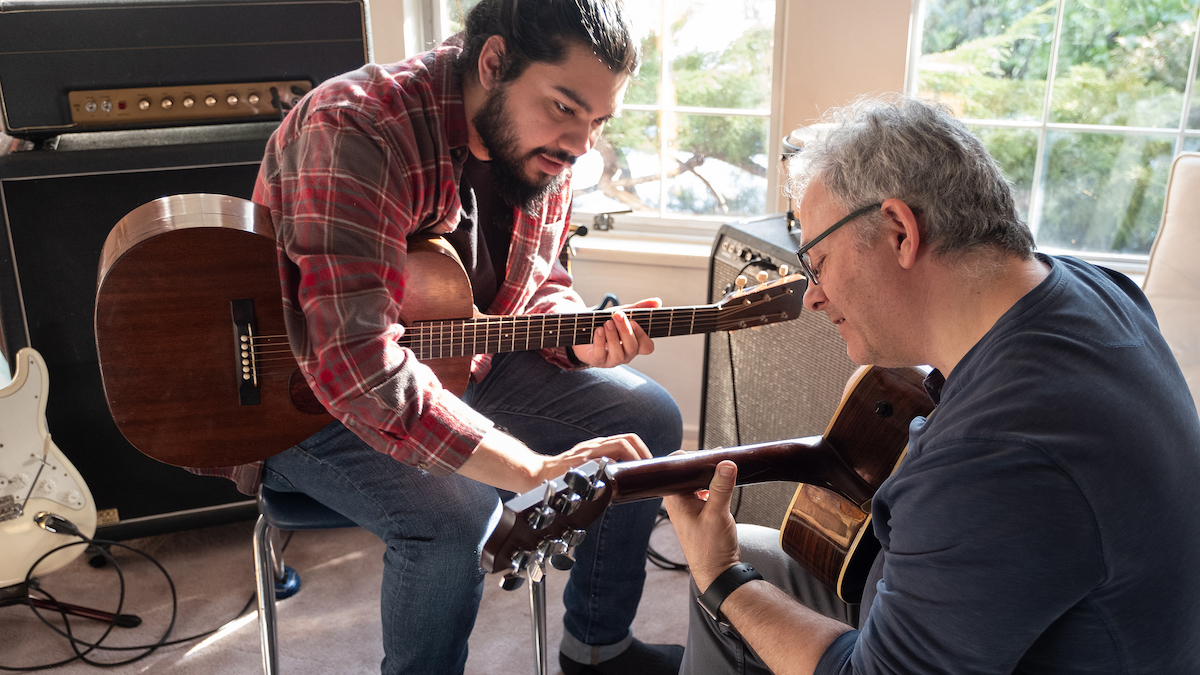
Choosing a beginner acoustic guitar can be tough, particularly if you don't have any experience in guitars to begin with. If you're here looking for your first acoustic, or you're looking to buy one for a family member, here's what you should look out for.
1. Cost
You can trust Guitar Player.
How much you want to invest in your first instrument is really down to you. If it’s just to dip your toe in the water, then you might not want to commit too much cash. Anything around the $150 mark should get you something decent and playable, without spending money on features you don’t need.
If you know you’re keen, then it’s definitely worth spending a little more. A better guitar will likely sound better, so you’ll get more enjoyment out of it, and it means that you’re not looking to upgrade it once you master the basics. It'll also last longer, so can accompany you further into your playing career.
2. Wood types
The best beginner acoustic guitars will feature a selection of solid and laminate or layered woods. Solid woods sound richer and more complex; they will gradually break in over time and sound better the more you play them. Like with many of these things though, you usually pay more for solid woods.
Laminate wood is multiple layers of wood glued together, which doesn’t resonate or vibrate quite as freely. It is cheaper to produce though, and it’s also more resistant to fluctuations in temperature and humidity.
With your first guitar, you wouldn’t necessarily notice the benefits that an all-solid guitar would bring. A nice in-between is a guitar with a solid top and laminate back and sides. The top can be seen as the ‘speaker’ of an acoustic so it has a huge impact on tone. Making this from solid wood and the back and sides from laminate yields great tones, but keeps the cost down.
3. Electronics
Some of the options in our pick of beginner acoustics are fitted with pickups. These allow you to plug into an amp or PA system to amplify your signal – this is really helpful if you’re looking to start playing live as it means you don’t have to upgrade from your existing guitar before you do.
4. Neck profile
The neck profile basically just refers to the shape of the neck. Different brands have all sorts of different names for them, but essentially what is helpful for a beginner is a slim neck.
A thin neck means that it’s easier to get your fingers around to reach the strings, as there’s less wood – so less stretching and less hand fatigue. It also means that slightly less pressure is required to press the strings down to get the notes to ring out properly. Getting clear notes ringing out is one of the hardest things for beginners, so any help you can get from the guitar is good!
FAQs
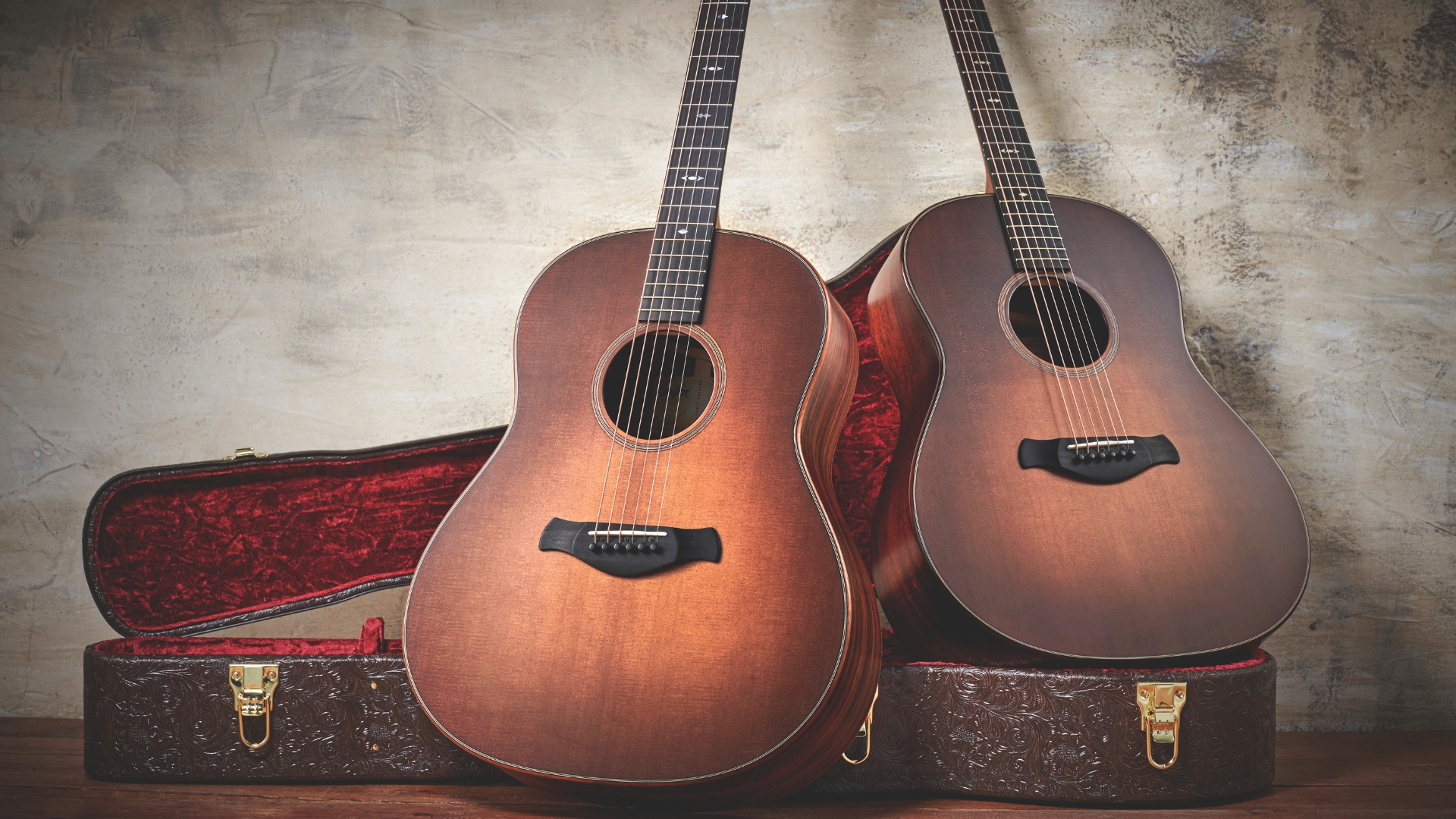
What type of acoustic guitar is best for beginners?
There are a few of schools of thought at play here, but for young beginners, a 3/4 size acoustic guitar is probably the best option. To be fair, even if you're an adult a 3/4 size can make that initial phase of playing a lot easier, but it can feel cramped if you have particularly large hands.
Others would suggest starting with a classical guitar. It's how I got properly into acoustic guitar, and that's because the nylon strings were much easier on my fingers, enabling me to practice for longer. The strings are spaced further apart which helps with fretting chords, but this can make it more difficult for those with smaller dimensions. You could potentially get a 3/4 or half size classical however, which would overcome that particular issue.
Finally, there are those who might recommend starting with a dreadnought. In my opinion I actually think that's the worst kind of guitar to start with, as they're particularly difficult to play, even for those who've been playing for a few years. They do, however, enforce some very good habits, strengthening your hands and getting you used to fretting chords on a full-size neck, so there's something to be said for adults starting with this type of guitar.
How much is a good beginner acoustic guitar?
A decent acoustic guitar can cost as little as $150, but aiming for the $200 mark is a good idea in my opinion. If you can spend more it's definitely worth doing, as a better guitar will encourage learners to keep coming back to the instrument, and last longer into their guitar playing career.
What is the first thing a beginner guitarist should learn?
For me, I first got hooked on playing riffs. Learning simple motifs like the James Bond and Mission Impossible themes, recognisable yet relatively simple is a great way to encourage new players. Traditional thinking has you starting with chords, which is a nice idea in theory, but I've found it has the tendency to put players off.
Give them something they know from one of their favorite artists, even if it's simplified, and you'll find new guitarists far more likely to come back to the instrument.
What does dreadnought mean in guitars?
A dreadnought is a particular size of acoustic guitar body, one that's pretty large as far as acoustic guitars go, beaten only by the 'jumbo' body shape.
Is cutaway better than dreadnought?
I don't believe a cutaway makes all that much of a difference for beginner guitarists, who are unlikely to be playing that far up the neck until they've gotten more experience. Whether the guitar has a cutaway or not doesn't really affect the overall playability, so don't worry too much about it.
How we test
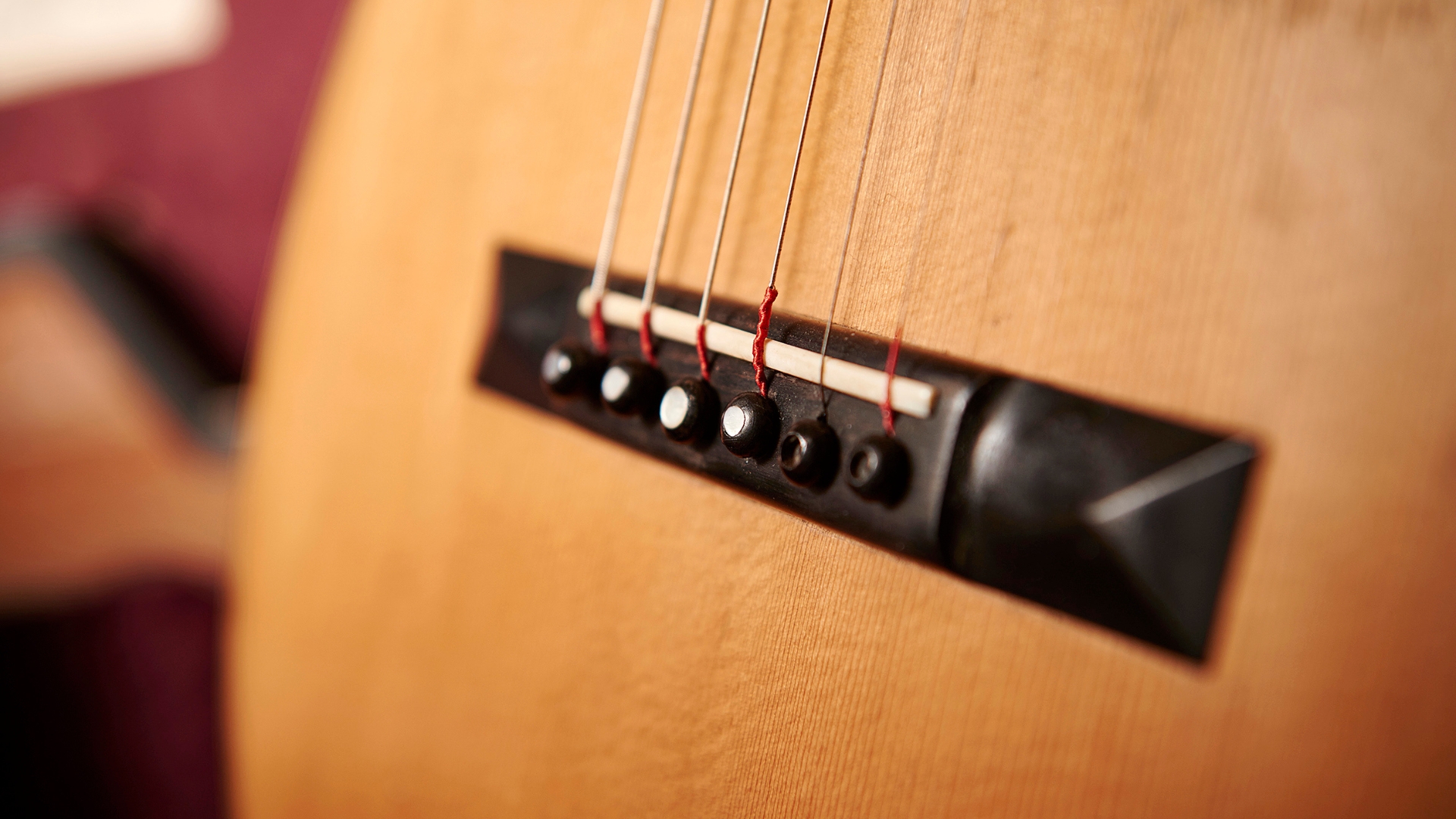
When testing a beginner acoustic guitar, we'll perform the exact same processes as we do on a regular acoustic guitar. There are several things we look for in an acoustic that are beginner-specific however, focusing particularly on the price and playability.
We focus on the following things with beginner acoustics:
- How does it play?
- Does it sound good?
- Is it well put together?
- Is it good value for money?
These questions inform all of our testing, which typically starts with a close inspection of how well the instrument is put together. We'll look at the neck join, the way any hardware has been installed, as well as the interior of the guitar to see how the bracing is applied.
Next, we'll look at the playability of the instrument, examining the neck for any sharp fret ends, or signs of poor build quality. We'll play the guitar with various techniques and style, checking how it feels all across the neck before moving on to the next step.
Sound arguably isn't quite as important for a beginner as it would be for someone who knows their tonewoods, but we still expect the instrument to sound good. Even if it's made with cheaper, laminated woods, a good beginner guitar should still sound inspiring enough to keep players coming back for more.
Read more on how we test gear and service at Guitar Player.
Related buyer's guides
- The best beginner electric guitars to empower your guitar journey
- Step onstage with out pick of the best acoustic guitar amps
All the latest guitar news, interviews, lessons, reviews, deals and more, direct to your inbox!
After spending a decade in music retail, I’m now a freelance writer for Guitar Player, Guitar World, MusicRadar and Reverb, specializing in electric and acoustic guitars bass, and almost anything else you can make a tune with. When my head’s not buried in the best of modern and vintage gear, I run a small company helping musicians with songwriting, production and performance, and I play bass in an alt-rock band.
- Ross Holder
- Matt McCrackenJunior Deals Writer
